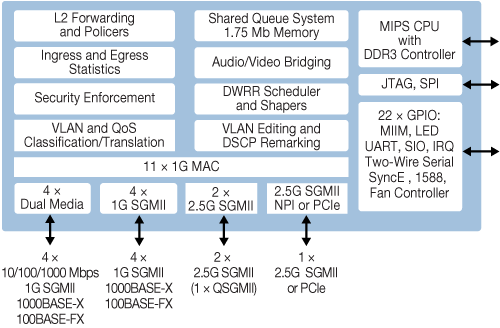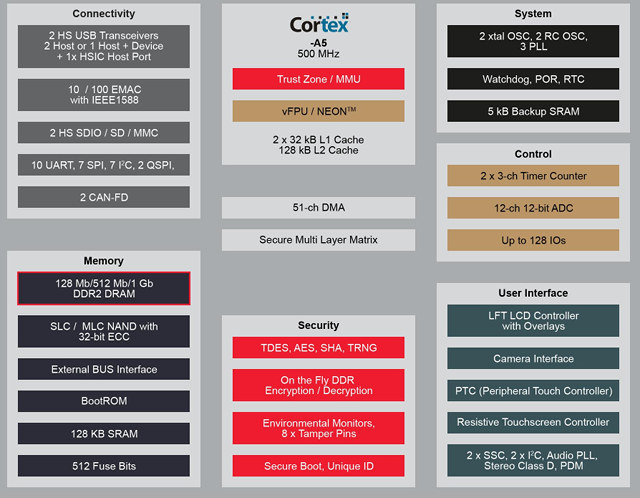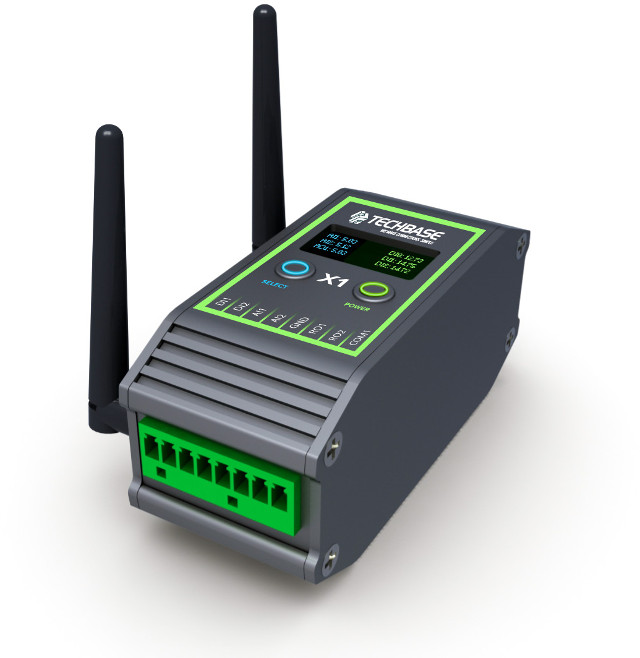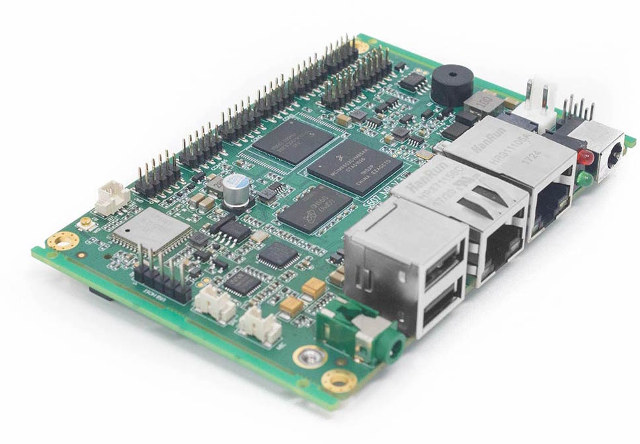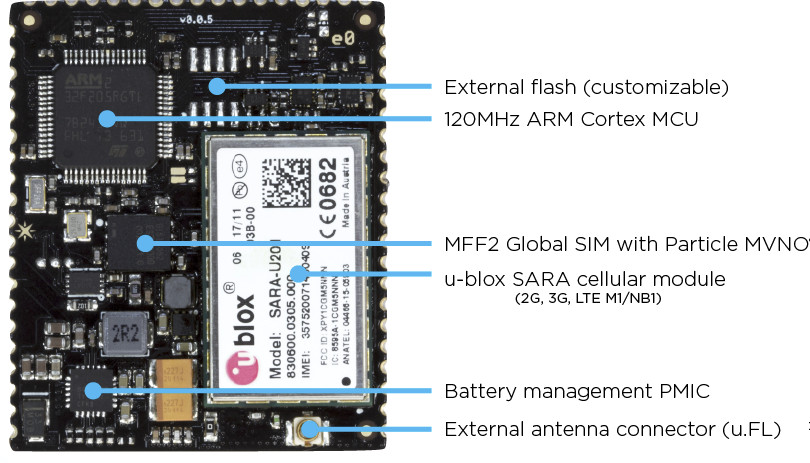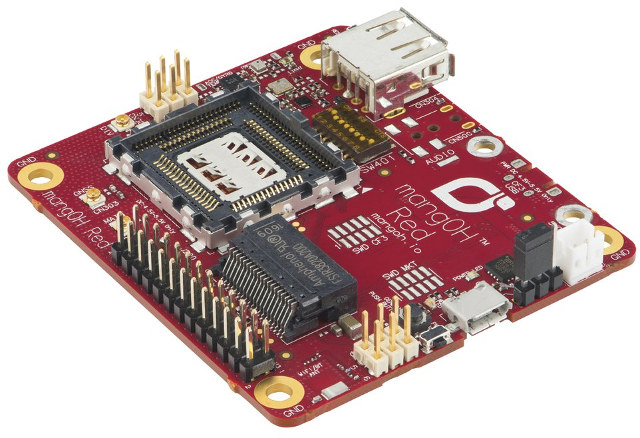The Embedded Systems Conference takes place each year in Boston, US in April or May. This year, the event will occur on April 18-19, and the organizers have published the schedule with 7 tracks: Advanced Technologies, Center Stage (free), Embedded Hardware Design & Verification, Embedded Software Design & Verification, IoT and Connected Devices, Keynotes (free) and Special Event (free). Even if you can’t attend, it’s always useful to have a look at the schedule to learn about potential industry developments. So I’ve made my own virtual schedule with some of the sessions I found relevant to this blog. Wednesday, April 18 8:00 – 10:00 – An Introduction to RTOS by Jean Labrosse (Software Architect, Silicon Labs) This tutorial will help you understand what RTOSs are and how they work so that you can make better use of their features. The class will explain what an RTOS is and why you […]
Microsemi VSC7513 and VSC7514 MIPS SoCs for Ethernet Switches Get Initial Mainline Linux Support
Microsemi VSC7514 is a 10-port Gigabit Ethernet (GbE)/SMB switch supporting a combination of 1G and 2.5G Ethernet ports, and VSC7513 comes with basically the same features except it’s limited 8 ports. Both SoCs include a MIPS processor with DDR3 memory interface, and support industrial and enterprise Ethernet switching features such as VLAN and QoS processing. Microsemi VSC751x Ocelot family was unveiled in June 2016, but I only heard about them today, as Free Electrons recently added initial support for VSC7513 & VSC7514 chip into mainline Linux with the patch series available here. Microsemi VSC7514 specifications & features: CPU / Memory Interface – Integrated 500 MHz MIPS 24KEc CPU with MMU and DDR3/DDR3L SDRAM controller Ethernet Connectivity – 4x dual media copper ports, 2x 1G SGMII ports, and 2x 1G/2.5G SGMII ports Host CPU Interfaces – PCIe 1.x and NPI CPU interface Internal shared memory buffer (8 queues per port) Jumbo […]
SAMA5D2 Based SiPs Combine ARM Cortex-A5 Processor With Up to 128MB DDR2
Atmel SAMA5D2 ARM Cortex-A5 processor was released about two years ago with extended temperature range and lower power consumption compared to previous SAMAD5 processors, with the new SoC still targeting industrial Internet of Things (IIoT), wearables and point of sale applications. In recent years, we’ve seen companies packing main components into systems-in-package (SiP) with products such as Octavo Systems OSD3358 and Espressif Systems ESP32-PICO-D4 with integrate an existing processor with memory, storage, and/or PMIC. Microchip (previously Atmel) has now done the same for their SAMA5D2 processors with SiPs combining the Cortex A5 SoC with DDR2 memory. Four SAMA5D2 SiPs have been launched: ATSAMA5D225C-D1M based on ATSAMA5D22C MPU with extra SD/SDIO, QSPI, FLEXCOMs (2x), I2S, and timers (2x) and: 128 Mb (16 MB) DDR2 DRAM 90 Peripheral I/Os 196 BGA Package Designed for RTOS/bare metal development ATSAMA5D27C-D5M based on ATSAMA5D27C MPU with: 512 Mb (64 MB) DDR2 DRAM 128 Peripheral I/Os […]
TECHBASE Moduino X Series Industrial IoT Modules / Endpoints are Based on ESP32 WiSoC
We’ve previously covered TECHBASE ModBerry industrial IoT gateways leveraging Raspberry Pi 3, FriendlyELEC NanoPi M1 Plus, or AAEON’s UP Linux boards. The company has now launched Moduino X series modules powered by Espressif ESP32 WiFi + Bluetooth SoC to be used as end points together with their ModBerry gateways. Two models have been developed so far, namely Moduino X1 and X2, with the following specifications: Wireless Module – ESP32-WROVER with ESP32 dual-core Tensilica LX6 processor @ 240 MHz, 4MB pSRAM (512KB as option), 4MB SPI flash; External Storage – X2 only: micro SD card slot Connectivity 802.11 b/g/n WiFi up to 16 Mbps + Bluetooth 4.2 LE with u.FL antenna connector X2 only: 10/100M Ethernet Options: LoRa (Semtech SX1272); Sigfox (TI CC1125); LTE Cat M1/NB1; Zigbee Serial – 2x RS-232/485 Display – Optional 0.96″ OLED display with 128×64 resolution Expansion I/Os 4x Digital I/O (0 ~ 3V) 2x Analog Input: […]
Habey EMB-2200 Pico-ITX board is Designed for Industrial IoT Gateways & HMI Panels
Habey USA has sent out an email to announce their EMB-2200 industrial grade Pico-ITX board powered by NXP i.MX6UL processor with up to 512 MB DDR3, WIFi and Bluetooth, optional PoE support, LCD interface, etc…, and designed for IoT gateways, HMI applications, and other embedded applications. Habey EMB-2200 board specifications: SoC- NXP i.MX 6UltraLite single core ARM Cortex-A7 processor at 528/696MHz System Memory – 128, 256 or 512MB RAM Storage – Various options of eMMC, iNAND or SLC NAND flash (Default: 8GB eMMC flash) Display – 1x 24-bit Parallel LCD (RGB) interface up to 1366×768, 4-wire touch interface Audio – 1x 3.5mm Line OUT jack Connectivity – 2x 10/100 Mbps Fast Ethernet ports, WiFi and Bluetooth module USB – 2x USB 2.0 ports I/Os – 5x RS-232 header, 2x CAN Bus, 2x USB2.0, 1x USB OTG Configurable GPIO, SPI, I2C Expansion – 1x full-size mini-PCIe with USB connection for cellular […]
Particle E Series is a Family of 2G, 3G, 4G LTE Cellular IoT Modules Optimized for Mass Production
Cellular IoT has really taken off this year from the low cost Orange Pi 2G IoT board to 4G GPS Trackers, and global IoT SIM cards. Particle has been in this market for a couple of years, starting with their Electron boards, and the company has just announced the new Particle E series family of industrialized 2G, 3G, and LTE-enabled modules and a development kit. Key features of Particles E series modules: Cellular Connectivity u-blox SARA modules for cellular connectivity LTE: SARA-R410M 3G: SARA-U201/U260/U270 2G: SARA-G350 (2G) Embedded SIM card, Particle MVNO support in 100+ countries u.FL antenna connector MCU – STM32F205RGT6 120MHz ARM Cortex M3 microcontroller with 1MB flash, 128KB RAM Storage – • Expandable flash memory I/Os – 63-pin surface mountable castellated module with up 30x GPIOs, 12x ADC, 2x DAC, 13x PWM, 3x UART, 2x SPI, 1x I2S, 2x CAN, 1x USB 2.0 (Some signals are multiplexed) […]
MangOH Red Open Source Hardware Board Targets Cellular Industrial IoT Applications
Sierra Wireless has announced MangOH Red open source hardware platform designed for IIoT (Industrial IoT) applications with a snap-in socket for 2G to 4G & LTE-M/NB-IoT modules, built-in WiFi and Bluetooth, various sensors, a 26-pin expansion header, and more. MangOH Red board specifications: Snap-in socket to add any CF3-compatible modules, most of which based on Qualcomm MDM9215 ARM Cortex A5 processor including: Airprime WP7502 LTE Cat 3, HSPA, WCDMA, EDGE/GPRS module Airprime WP7504 LTE Cat 3, HSPA, WCDMA, CDMA module Airprime WP7601 LTE Cat 4 module Airprime WP7603 LTE Cat 4, WCDMA module Airprime WP8548 HSPA, WCDMA, EDGE/GPRS, and GNSS module AirPrime HL6528RD quad-band GSM/GPRS Embedded Wireless Module designed for the automotive market And more…. Storage – micro SD slot Wireless MCU Module – Wi-Fi 802.11 b/g/n and Bluetooth 4.2 BLE module with an ARM Cortex-M4 core MCU (Mediatek MT7697) providing access to real-time I/Os Wireless Connectivity “Accessories” Micro SIM card […]
Embedded Linux Conference & OpenIoT Summit 2017 Schedule
The Embedded Linux Conference 2017 and the OpenIoT Summit 2017 will take place earlier than last year, on February 20 – 23, 2017 in Portland, Oregon, USA. This will be the 12th year for ELC, where kernel & system developers, userspace developers, and product vendors meet and collaborate. The schedule has been posted on the Linux Foundation website, and whether you’re going to attend or not, it’s always informative to check out the topics. So as usual, I’ll make a virtual schedule for all 5 days. Monday, February 20 For the first day, the selection is easy, as choices are limited, and the official first day it actually on Tuesday. You can either attend a full-day paid training sessions entitled “Building A Low Powered Smart Appliance Workshop“, and the only session that day: 14:30 – 15:20 – Over-the-air (OTA) Software Updates without Downtime or Service Disruption, by Alfred Bratterud, IncludeOS […]



